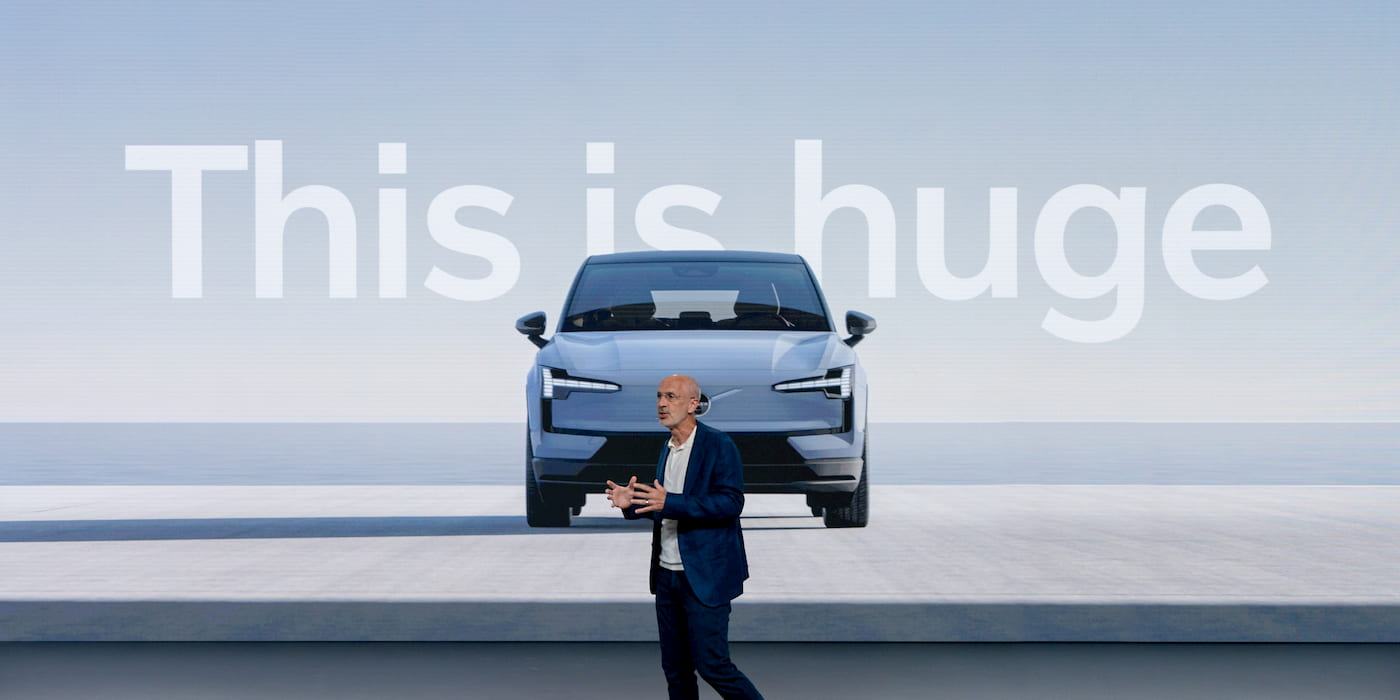Volvo’s EV commitment is in question after CEO Jim Rowan’s recent comments. As one of the first automakers to announce plans for an all-electric lineup, was viewed as a first mover. Here’s why Volvo may be backing off its all-EV promise by 2030.
Volvo was one of (if not the) first legacy automakers to by 2030. By then, Volvo said it would phase out any car with an internal combustion engine, including hybrids. The plans were outlined as part of Volvo’s commitment to reduce its carbon footprint and contribute toward a sustainable future.

“We are fully focused on becoming a leader in the fast-growing premium electric segment,” Volvo’s former CEO and current chairman of the Polestar board, Hakan Samuelsson, said in March 2021. Volvo’s former CTO, Henrick Green, added, “There is no long-term future for cars with an internal combustion engine.” By 2025, Volvo said it aimed for 50% of global car sales to be EV, with the rest being hybrid.
By 2030, all Volvo cars sold should be fully electric. Volvo already has a strong lineup of EVs rolling out, including , starting around $35,000, and the larger EX90. It’s also launching its first luxury electric minivan, , in China.
Fast forward a little over three years, and the story may be changing. Although Rowan reiterated he’s a “huge believer in electric propulsion” (which he said is superior to the internal combustion engine), Volvo’s CEO said it could “take time to bridge different parts of the world for full electrification. Rowan added that hybrids could “form a solid bridge” as markets adopt EVs at different rates.
“Our plug-in hybrids and mild hybrids remain very strong and popular with our customers, and we will continue to invest in this lineup,” Rowan explained. The comments come after Volvo’s EV sales slid 74% in the US in the first half of 2024. Despite this, EV sales remained strong in Europe (+80%) and other markets (+49%) outside the US, Europe, and China.
Volvo sold 90,760 fully electric vehicles globally in the , up 53% from the 59,260 sold last year. Fully electric cars accounted for 26% of Volvo’s sales last month. Some US Volvo dealers expect to sell gas-powered hybrids well past 2030, according to .
Volvo spokesperson Russel Datz said, “While we firmly believe electrification is the future, this transition will not be a linear development.” He added, “We will continue to invest across the breadth of our product range.” The comments come as several rivals, , GM, Hyundai, and others have announced similar plans to use hybrids as a bridge.
Although some media outlets claim EV sales are “crashing” or “dead,” the market is still growing. It may be slower than some expected, but EVs are still gaining ground. According to , over one in five cars sold this year will be electric.
The share of electric vehicles has surged from about 4% in 2020 to 18% in 2023. In the US, EV sales were up 11% in the second quarter, with a record 330,463 units sold, according to . Electric cars accounted for 8% of new vehicle sales in Q2, up from 7.
1% in Q1 and 7.2% in Q2 2023. industry insights director Stephanie Valdez Streaty said, “Automakers that deliver the right product at the right price and offer an excellent consumer experience will lead the way in EV adoption.
” Those automakers are the same ones doubling down on EV tech now, with EVs expected to lead long-term growth. and subscribe to the . Peter Johnson is covering the auto industry’s step-by-step transformation to electric vehicles.
He is an experienced investor, financial writer, and EV enthusiast. His enthusiasm for electric vehicles, primarily Tesla, is a significant reason he pursued a career in investments. If he isn’t telling you about his latest 10K findings, you can find him enjoying the outdoors or exercising.


















